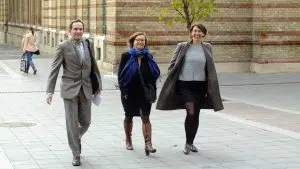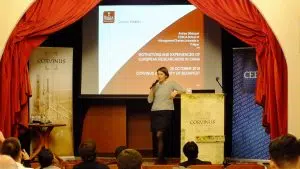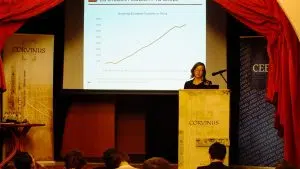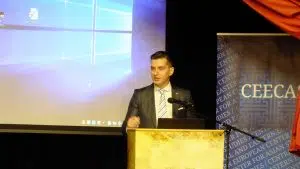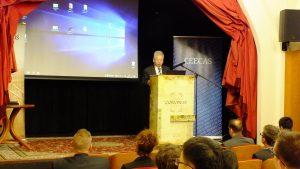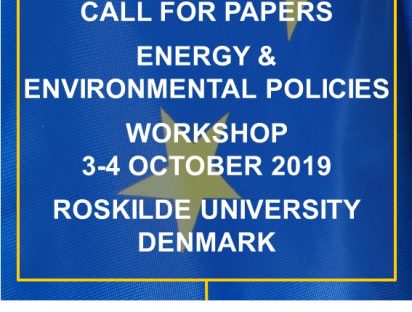Budapest, 26th of October – With the Belt & Road Initiative China and Europe are growing closer together. These new dynamics were at the center of the Research Event of ESSCA Budapest and Corvinus University.
Europe and China share many economic interests, not only since US President Trump is applying a protectionist trade policy. Hungary is of increasing interest for China, especially since the foundation of the “16+1”, a forum where China exchanges with Central and Eastern European countries since 2012. The ambassador of China in Hungary, who held a short opening speech, emphasized this importance. Hence, Budapest was the perfect place to discuss EU-China relations.
The conference included a broad diversity of guests and topics. Among the guests of the event were the former Hungarian ambassador to China, experts from private companies, such as Deloitte, and researchers from different universities, business schools and research institutes. The topics ranged from economic to political matters.
The four major subject blocks were:
• EU-China Relationship
• Talent Management
• China’s President Xi Jinping
• Manufacturing & Economic Development
ZHAO Wei and Maximilian RECH from ESSCA School of Management presented on the issue of manufacturing strategies of nations such as the US, Germany, Japan and China. On the subject of Talent Management, Lin Goethals gave insights on how China is doing as a Talent Magnet with a focus on student mobility, whereas Andrea Strelcova, showed what motivations and experiences of European researchers are in China.
During the conference, it became clear that China’s influence on global politics and trade is increasing, therefore the EU*Asia Institute investigates the challenges and opportunities of the cooperation of Europe and Asia. With its Shanghai campus and the EU*Asia Institute, ESSCA offers to its researchers and students the possibility for a better understanding of China, enables them to develop an expertise on the country and helps to foster EU-Asia relations.
Here the complete list of subjects:
WOLF Csaba, Deloitte, Hungary – China, the Transforming Reality
SZUNOMÁR Ágnes, Hungarian Academy of Sciences – Economic miracles and traps – Can China avoid the middle-income trap?
H.E. KUSAI Sándor, former Hungarian ambassador to China – The misunderstood reforms and the strategic choices of the Xi Jinping
ZHAO Wei and Maximilian RECH, ESSCA School of Management – « Manufacturing Strategies of Nations: A VOC Perspective on US, Germany, Japan and China »
David MORRIS, Corvinus University – Political risk and the Belt and Road Initiative
QIAOAN Runya, Mendel University, Czech Republic – David Speaks to Goliath: Civil Society Policy Advocacy in China
Richard Q. TURCSANYI, Institute of Asian Studies, Bratislava – Xi Jinping and Chinese foreign policy 3.0
SONG Xinning, Renmin University, China – New Type of EU-China Strategic Partnership in the New Era
Anastas VANGELI, Doctoral Researcher, Polish Academy of Sciences – Searching for Complementarities amidst Global Uncertainties: the « Connectivity Turn » in Europe-China Relations
Lin GOETHALS, ESSCA School of Management – China as a Talent Magnet: The Student Mobility-Migration Nexus In EU-China Relations
Andrea STRELCOVA, ESSCA School of Management – Migration of Talents: Motivation and Experience of European Researchers in China
MA Junchi, Chinese Academy of Social Sciences – Implications for the Beld and Road Initiative – perceptions of China in CEE countries
GU Hongfei, Chinese Academy of Social Sciences – Reconstructing China-EU Relations: Institutional Dilemma of “16+1” Cooperation Mechanism
[cite]

